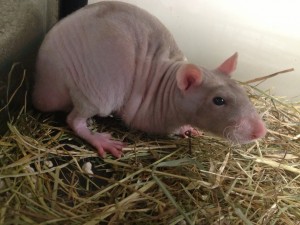Pet shop Gloucester advice on avoiding infection from animals through good hygiene.
All animals have the potential to carry organisms (viruses, bacteria, protozoa, multicellular parasites) that can cause disease in humans. The most obvious and common is E.coli bacteria. We carry this ourselves, that’s why you should wash your hands after going to the toilet. Another common one is salmonella, potentially carried by a host of animals including reptiles and birds.
The commonest way of spreading these disease causing organisms is through faecal material (poop), urine, saliva and breath (in the water droplets). So on the face of it owning an animal seems to be a bad thing to do if you want to avoid being ill.
Well you actually stand more chance of being infected by disease from another human than you do from an animal, wild or a pet. How many people do you know who don’t wash their hands after going to the toilet or before preparing food, after blowing their nose, who sneeze, pick their nose, cough and splutter all over the place when they have a cold or worse and every one knows the story about the research into how many individual samples of human urine can be found on bar snacks! I even gave myself food poisoning recently, most likely from blue cheese, although I can’t be sure.
With regard to animals, especially pet animals, the risk can be greatly reduced by ALWAYS following a basic set of rules. It is common sense really when you think about it but it does no harm to reiterate the rules here. You wouldn’t lick a rat’s bottom (I would hope not anyway!) but that is exactly what you are doing if, after handling your pet rat, you bite that little bit of hang nail off or wipe your mouth with the back of your hand.
- Do not do anything that involves putting your hands near your face whilst handling any pet animal. This includes eating, drinking, smoking, sucking your thumb!
- Keep your pet’s enclosure clean and dry generally. Remove soiled bedding and use a disinfectant appropriate to the species (household disinfectants can be toxic to animals).
- Wash you hands IMMEDIATELY after handling you pet or cleaning its enclosure. Also after handling anything your pet touches such as toys, dog beds, scratch posts etc.
- Do not kiss your pet or hold it close to your face, that’s what humans are for.
- Cover any cuts, abrasions, sores or scratches with a water proof dressing before handling or cleaning. Also if you pick up any new ones in the process clean these and apply a suitable dressing.
- Don’t keep animals in rooms used to prepare food. Never let them walk on food surfaces and don’t wash animal items in sinks used for human food utensils. If you have no choice, always thoroughly disinfect the sink and surrounding work surfaces afterwards and don’t use the same cloths for both.
- Don’t let animals onto your bed and especially not your pillow.
Follow these rules and you shouldn’t end up as one of the many people with an undiagnosed gastrointestinal infection (24 hour bout of diarrhoea) or one of the very rare cases of rat hantavirus (the only two cases of this flu like disease I know of in the UK were breeders who were in constant contact with rats but clearly didn’t have sufficient infection control).
If you are sensible pets have been shown to reduce disease in humans but if you lick a rat’s bum (figuritively speaking), expect the worst!
Keep visiting for more pet shop Gloucester advice.
The Angell Pets Team


